Can You Shave with Regular Bar Soap? (The Best Options To Choose)
We have all been there. We’re all prepped and ready to shave, then only to discover we’re out of shaving soap. So what are the best alternatives to reach for in our cabinet?
It is possible to shave with regular bar soap, but it is not advised, especially for those with sensitive skin. Bar soap is meant to create a thin layer of soap that will clean away dirt and grime. Shaving soap, on the other hand, is specifically designed to create a thick layer that will protect your skin while aiding in a smooth, clean shave.
Read on to find a better way to shave when you run out of soap.
Is it okay to use regular bar soap to shave your face?
Bar soap and shave soap are actually very different in composition and ingredients, and they should not be used interchangeably.
Shave soap is specifically designed to create a thick lather that lifts the hairs and creates a slick barrier between the skin and the razor, reducing the likelihood of irritation. Regular bar soap just does not allow the blade to glide over the skin and it will gunk up a razor quickly resulting in an ineffective shave.
Have you ever considered using coconut oil in your vehicle instead of motor oil? Of course not. The composition of each oil makes it perfect for one job but potentially terrible for another. Regular bar soap, like coconut oil in an engine, offers no protection during a shave and your skin will show it.
A thorough cleansing is always recommended before a wet shave. Grime, grease, and oils are removed from the skin’s surface and the whiskers are softened. The natural oils stripped away by facial soap are supplemented by the shaving soap for comfort and protection.
Shaving soap uses a higher concentration of stearic acid as well as potassium and sodium salts. Stearic acid and salts combine to make the lather slick and stable and also serve to soften hair. The dense, slippery foam is something bar soap cannot provide. Shaving soap is also hydrating and antiseptic.
Some of the most common ingredients in shaving soaps are:
- Coconut oil
- Glycerin
- Argan Oil
- Olive oil
- Menthol
- Cocoa butter
- Shea Butter
- Aloe Vera
- Goat Milk
- Beeswax
Many ingredients such as cocoa butter, aloe vera, jojoba oil, and kokum butter can nourish, hydrate, and promote healing simultaneously. Shaving soap rarely contains any detergents that are designed to clean and contain only natural fragrances.
Bar soap often contains sodium lauryl sulfate (SLS) or other forms of detergent that are intended to break down oils. Skin naturally produces protective oils that when washed away leaving the skin feeling. Preservatives, such as parabens, are used in beauty products and can cause allergic reactions. Artificial fragrances have also been proven to cause reactions such as rashes.
Reasons not to use regular soap to shave
There are plenty of times when we must work with what we have available but sometimes it can cause more harm than good to reach for a bar of soap in place of your regular shaving cream or soap.
You should not use regular soap to shave your face because bar soap doesn’t:
- reduce friction
- hydrate
- soothe
Using regular soap for your shave will not only lead to irritated skin but will make a mess on your razor. Regular soap can lead to build-up forming, which will make the razor feel dull or uncomfortable.
If you were to use regular soap as a shaving medium, never use soaps containing exfoliating particles like beads or pumice such as Lava or Orange Glow. These soaps are intended to scour the skin to remove deep dirt and grime. There will be no comfort found in moving coarse particles across your face with a steel blade.
Bar soap doesn’t reduce friction
Bar soap is designed to effectively be a cleanser while shave soap is designed to be used to create a barrier between the blade and the hair.
The difference here is the oils and fats present in shave soap are designed to create a slick cushion of lather on which the razor glides.
Bar soap lather will not adhere to the face well and lacks the structural stability needed to protect the face from irritation.
Bar soap doesn’t hydrate
Bar soap helps to strip oils and dirt from the skin resulting in skin drying. Wet shaving dry skin will be very irritating as you discover the discomfort that comes with friction.
Cleansing is very important to the shaving process when utilized alongside exfoliating and moisturizing for the maximum benefit to the skin. This skincare regimen may seem overkill to some but the benefits of shaving really make themselves known here.
Bar soap doesn’t soothe
Many of the ingredients in shave soap, such as menthol, vitamin E, and cocoa butter, are present to reduce irritation and/or serve as antiseptics.
Bar soap may contain similar ingredients but in different volumes as regular soaps’ purpose is to clean rather than soothe.
The best alternatives to shave soap that you might already have
These are recommended alternatives to shaving soap and not suggested to permanently replace the wet shaving process.
If you run out of shave soap, use one of these before trying bar soap:
- Conditioner
- Lotion
- Baby oil
- Aloe/aloe gel
- Shave gel/cream
Mineral oils, lotions, and even hair care products can work as alternatives to shaving soap when nothing else is available. Use extra caution to avoid reactions if you have sensitive skin.
Avoid using your shaving brush to apply anything other than shaving soap as your brush could be ruined by oils.
Conditioner
Conditioners will hydrate and soften hair which results in effective shaving. Most conditioners are gentle enough on the skin but lack some of the antiseptic properties of shave soap.
There are conflicting opinions on this one. A dermatologist says that conditioners and shampoo should not be used as they are not designed for shaving while a chemist says that conditioners make the perfect shaving cream alternatives. Note: the dermatologist in question is an ambassador for shaving products.
We split the difference and say using conditioner in an emergency shaving situation will be fine but should not be a long-term substitute for shaving soap.
Lotion
Lotions usually work great to great a barrier for the skin but care should be used to liberally apply it.
As the lotion is absorbed by the skin, the usefulness subsides.
Baby oil
Baby oil, mineral oil, and coconut oil are fine shaving soap alternatives but are generally very messy but present few other downsides.
Mineral oils, such as baby oils, are synthetic while coconut and olive oils are natural. Natural oils can sometimes clog pores while synthetic oils can be difficult to remove from skin or razors. Mineral oils make a fine alternative to shave soap when necessary.
Aloe/Aloe gel
Aloe directly from the plant or in gel form makes a great shave soap alternative.
Aloe is recommended for its soothing and moisturizing effects on the skin. Aloe is an ideal alternative in a pinch and it can even grow in a planter on your counter.
Shave gel/cream
This clearly is not the same as a wet shave but shave creams, gels, and butters are made for shaving and intended for the face.
There is no shame in cheating with some store-bought lather if you need it and it’s never a bad idea to keep a can or tube handy anyway.
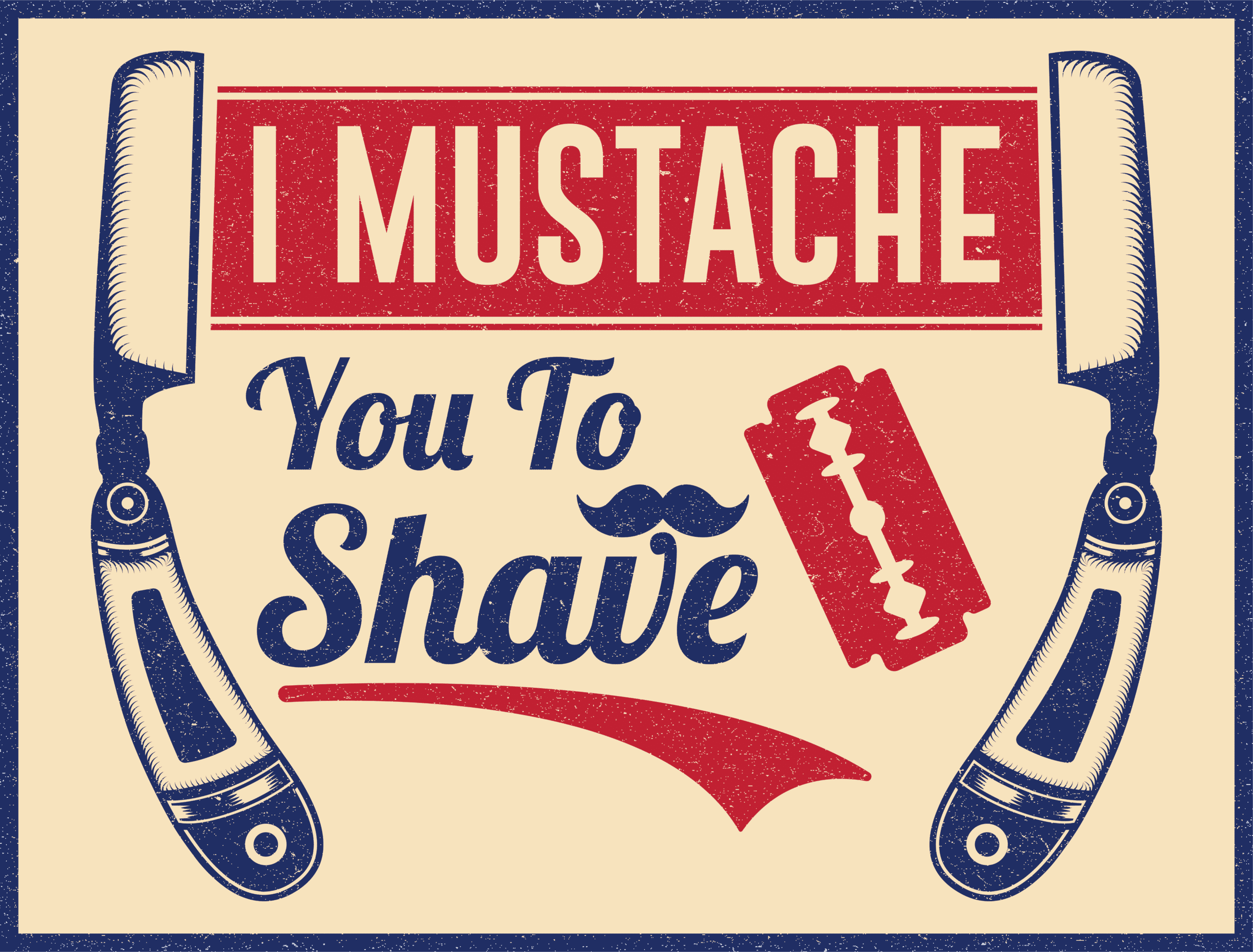
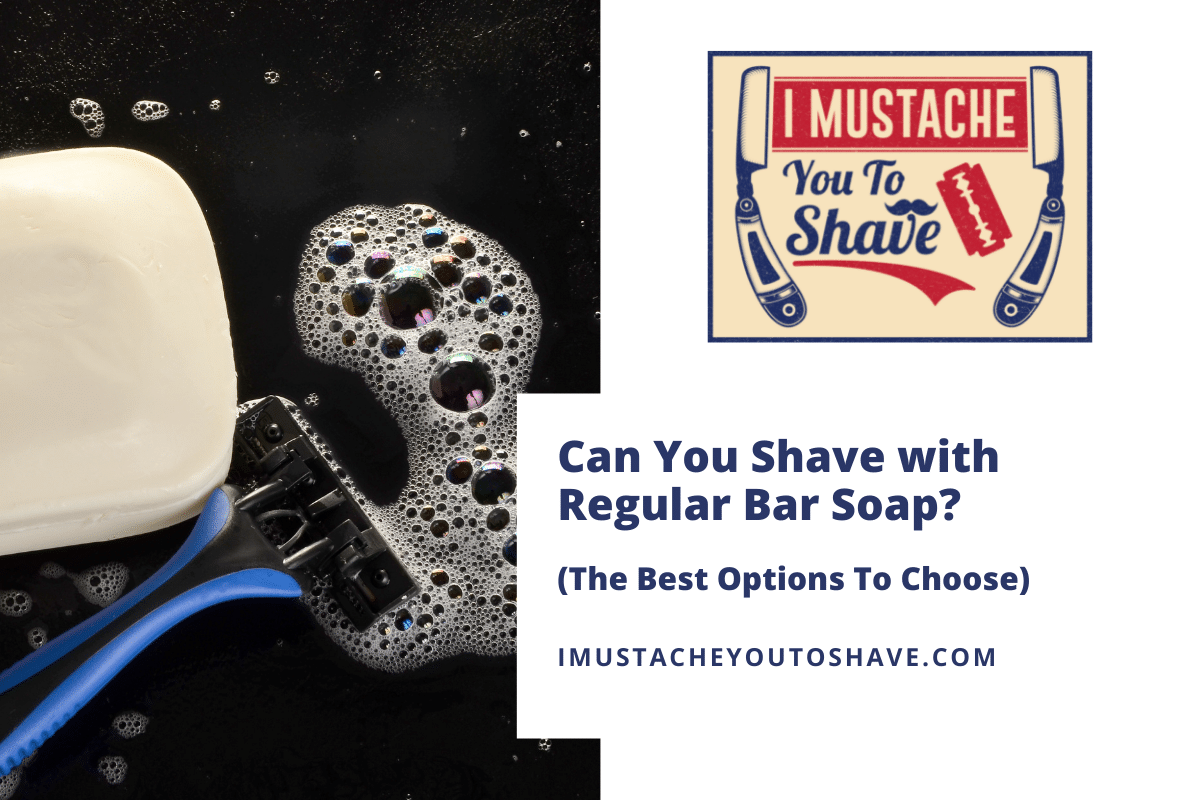
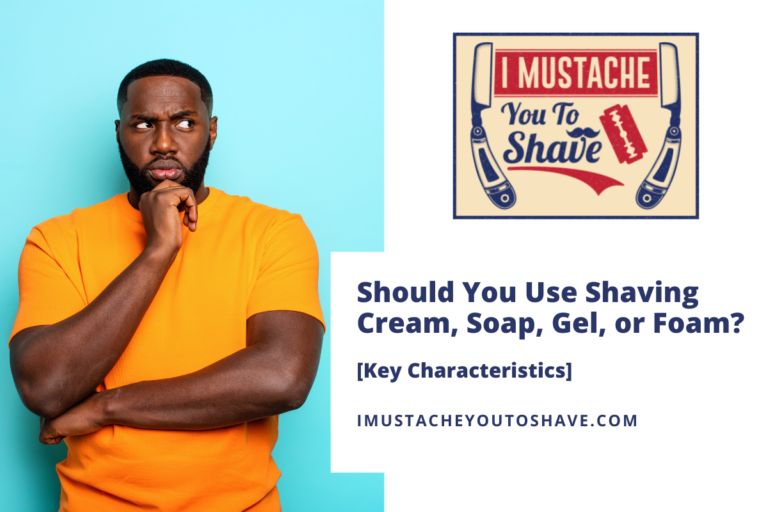
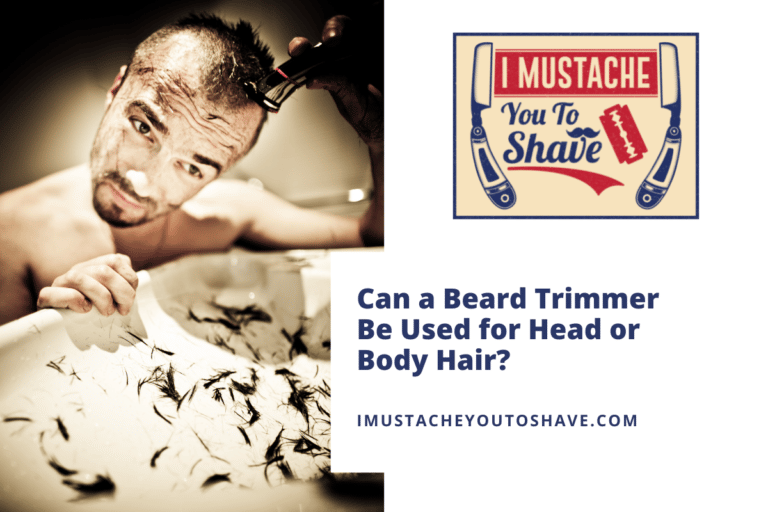
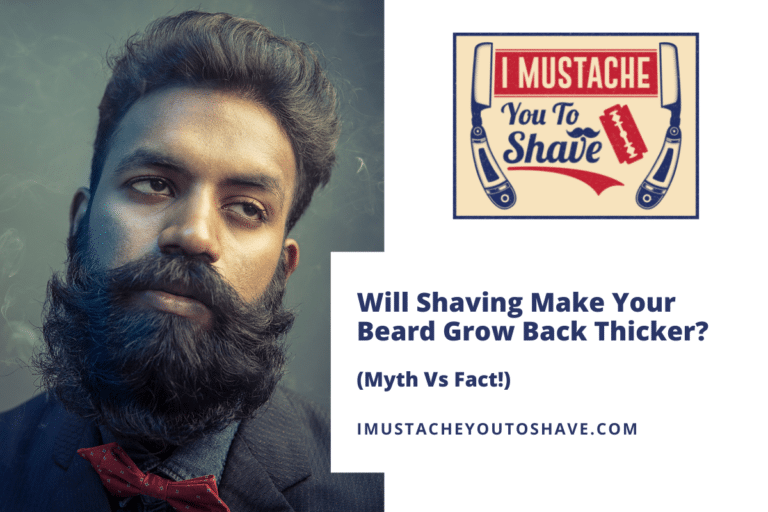
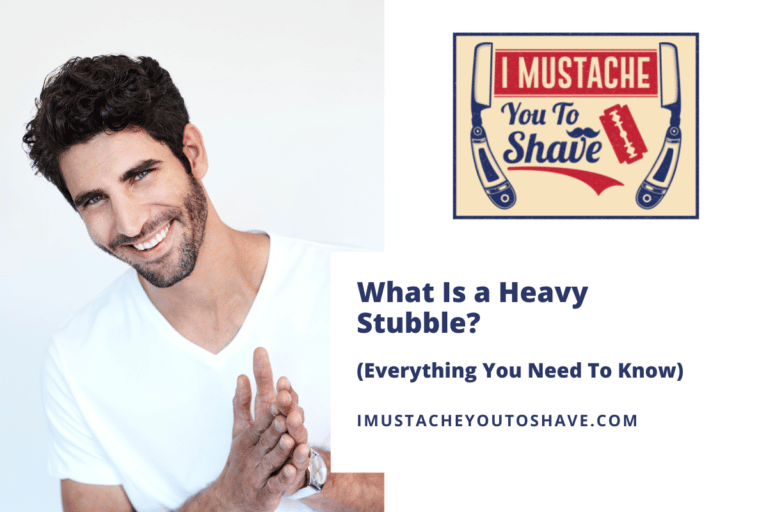
![Is Stirling Shaving Soap Any Good? [Big Results from a Small Business]](https://imustacheyoutoshave.com/wp-content/uploads/2023/01/is-stirling-shaving-soap-any-good_featured-768x512.png)
![Do You Need a Shaving Cream Warmer? [With a Free Alternative]](https://imustacheyoutoshave.com/wp-content/uploads/2022/11/do-you-need-a-shaving-cream-warmer_featured-768x512.png)